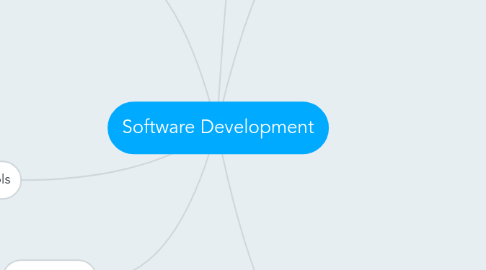
1. Design Patterns
1.1. Group of Four (GoF)
1.1.1. Creating Patterns
1.1.1.1. Builder
1.1.1.2. Prototype
1.1.1.3. Factory
1.1.1.3.1. Abstract Factory
1.1.1.3.2. Factory Method
1.1.1.4. Singleton
1.1.2. Structural Patterns
1.1.2.1. Adapter
1.1.2.2. Bridge
1.1.2.3. Composite
1.1.2.4. Decorator
1.1.2.5. Facade
1.1.2.6. Flyweight
1.1.2.7. Proxy
1.1.3. Behavioral Patterns
1.1.3.1. Chain of Responsibility
1.1.3.2. Command
1.1.3.3. Interpreter
1.1.3.4. Iterator
1.1.3.5. Mediator
1.1.3.6. Memento
1.1.3.7. Observer
1.1.3.8. State
1.1.3.9. Strategy
1.1.3.10. Template Method
1.1.3.11. Visitor
1.2. General Responsibility Assignment Software Patterns (GRASP)
1.2.1. Controller
1.2.2. Creator
1.2.3. Indirection
1.2.4. Information Expert
1.2.5. High Cohesion
1.2.6. Loose Coupling
1.2.7. Polymorphism
1.2.8. Protected Variations
1.2.9. Pure Fabrication
2. Frameworks
3. Developer Tools
4. Programming Languages
4.1. Ruby
4.2. Python
4.3. JavaScript
4.4. Java
4.5. Visual Basic .NET
4.6. C
4.7. C++
4.8. C#
4.9. PHP
4.10. Objective-C
4.11. Lua
4.12. Prolog
4.13. Assembly
4.14. Delphi
4.15. Visual Basic
4.16. Swift
4.17. SAS
4.18. NCL
4.19. AspectJ
4.20. F#
4.21. Scala
5. Data Base Management Systems
5.1. NoSQL
5.1.1. Search Engine
5.1.1.1. Elasticsearch
5.1.1.2. Solr
5.1.2. Graph DBMS
5.1.2.1. OrientDB
5.1.2.2. Neo4j
5.1.3. Wide Column Store
5.1.3.1. HBase
5.1.3.2. Cassandra
5.1.4. Document Store
5.1.4.1. MongoDB
5.1.4.2. Amazon DynamoDB
5.1.5. Key-value store
5.1.5.1. Amazon DynamoDB
5.1.5.2. Redis
5.2. SQL
5.2.1. Relational DBMS
5.2.1.1. Microsoft SQL Server
5.2.1.2. MySQL
5.2.1.3. Oracle
5.2.1.4. PostgreSQL
5.2.1.5. Firebird
